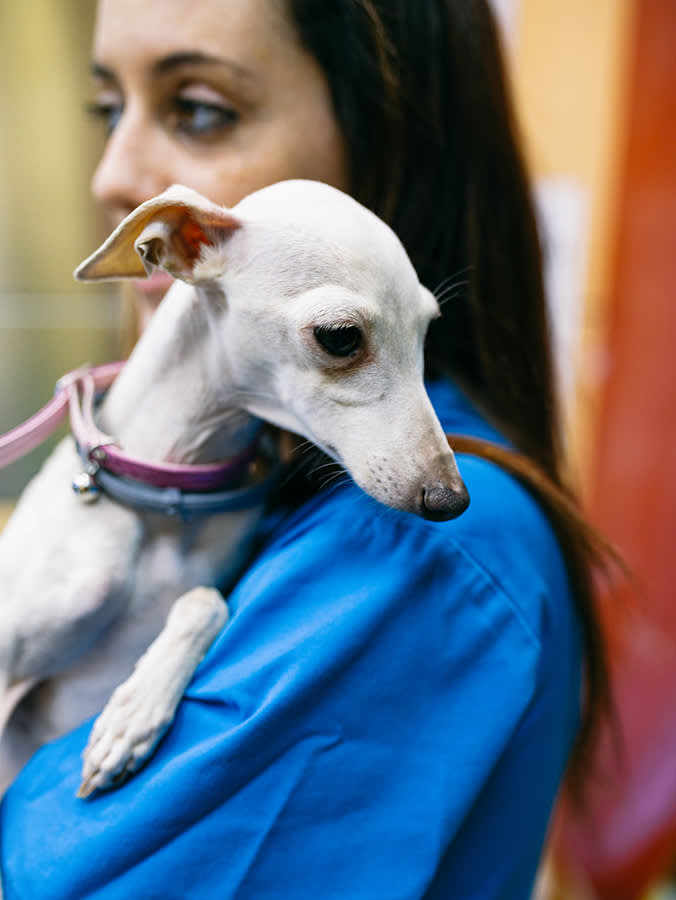A Mysterious Illness Is Making Dogs Across the Country Sick
Here’s what we know — and how to protect your pup.
After getting through the past few years, the last thing we want to hear is news of a mysterious new respiratory illness. But, unfortunately, there’s a puzzling cough spreading in pups throughout the country — with some rare cases being fatal.
The Oregon Department of Agriculture is working with veterinarians nationwide to determine what’s causing the contagious illness. At this moment, the origin of the illness is still stumping experts; the Oregon Veterinary Medical Association (VMA)opens in new tab reports that the illness seems to be viral, but “common respiratory diagnostic testing has been largely negative.”
Snap a pic of your pup’s teeth, and GREENIES™ will help you spot potential signs of oral health issues.
Where has the mystery dog illness been found?
Back in August, veterinarians reported over 100 cases of an atypical canine infectious respiratory disease (CIRDC) to the ODA. Cases were most concentrated in Portland, Salem, and Eugene, Oregon, but have now spread across the country, with one veterinary hospital in Colorado seeing close to 30 casesopens in new tab, according to TODAY. The illness has also been reported in California, Florida, Georgia, Idaho, Illinois, Indiana, New Hampshire, and Washington.
CIRDC cases are more common in group settings such as shelters or training facilities, as opposed to private homes. That said, any pup who socializes with other dogs — from dog parks to puppy classes to one-on-one hangs — can contract a contagious illness.
How much do you spend on your pet per year?
How do I know if my dog is sick?
Symptoms of the mystery illness include coughing, sneezing, eye or nose discharge, lethargy, trouble breathing, and blue or purple gums. If your dog has these symptoms — especially trouble breathing, severe lethargy, or blue or purple gums, which are signs of oxygen deprivation — you should get them to a veterinarian as soon as possible.
The Oregon VMA reports that the illness manifests in one of three ways: a mild to moderate cough for six to eight weeks or longer that is not responsive to antibiotics, chronic pneumonia that does not respond to antibiotics, or “acute pneumonia that rapidly becomes severe and often leads to poor outcomes in as little as 24 to 36 hours.”
Early treatment is important in recovery. If your pup has a cough, don’t wait to see how long it lasts: Take them straight to your veterinarian. As veterinarian Dr. Linsey Ganzer tells TODAY, the fatal cases she has seen were in dogs who arrived already in respiratory distress with pneumonia. The sooner your pup is seen, the better their potential outcome.
How can I keep my dog safe?
First priority: Make sure your pup is up to date on their vaccinations. The Oregon VMA reports that most dogs who are vaccinated against respiratory illness — such as canine influenza, Bordetella, and parainfluenza — only have mild cases of CIRDC.
Since the mystery illness is contagious, dog parents may want to reduce their pup’s exposure to other unknown dogs. Symptomatic dogs should be kept at home to reduce the spread, and your pup should steer clear of any dogs who are coughing, sneezing, or have other visible symptoms. Dogs should also not share communal water bowls.
As general suggestions for dogs attending events or gatherings with other dogs, the Oregon VMA suggests making sure all dogs are up to date on their vaccinations, giving dogs health check-ins 12 to 24 hours before the event, having a veterinarian onsite for health checks, and consulting with a vet before attending events.
It’s highly recommended to hire a personal dog sitter rather than using a boarder, if at all possible, during the upcoming busy holiday season.












